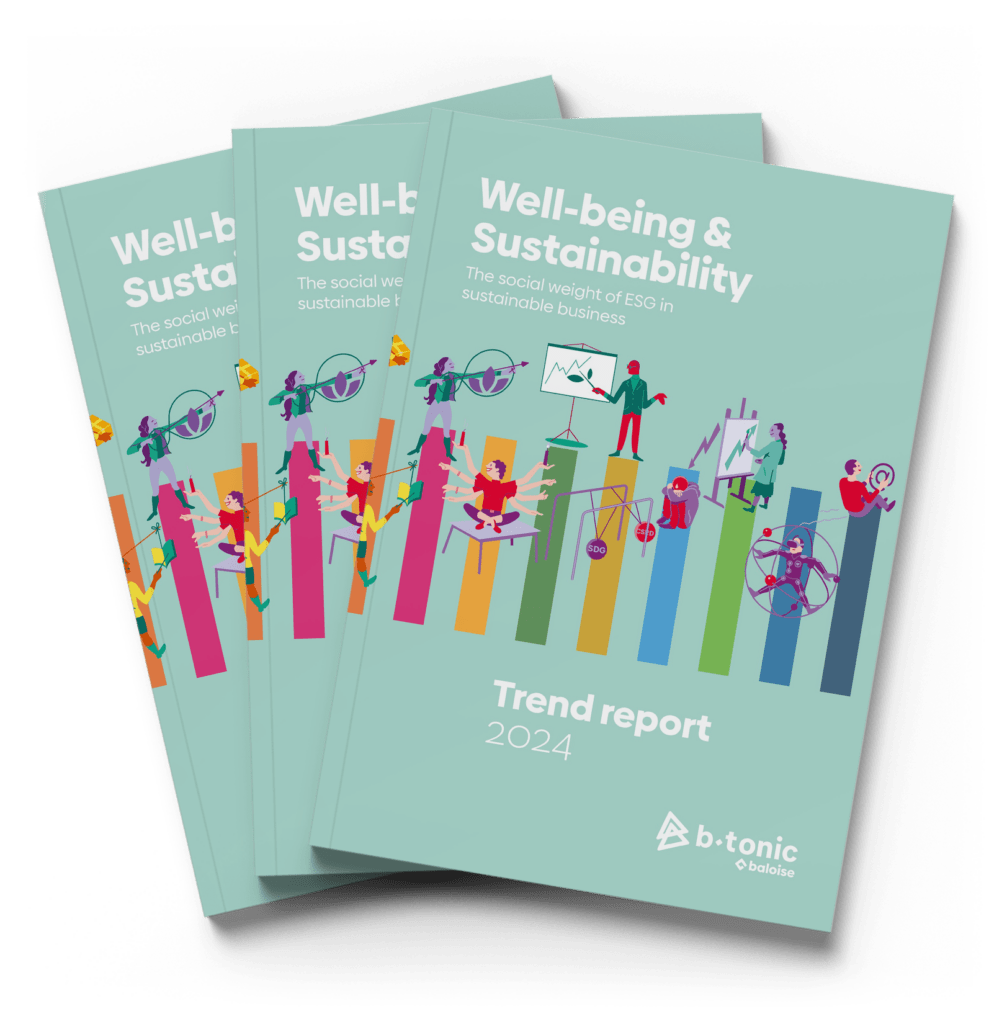Deconnection: 7 Tips for managers and team leaders
Since 1 April 2023, companies with a minimum of 20 employees must embed the right to deconnect in their organisation. It is actually one of the pillars of the labour deal. The right to deconnect is the legal right to be unreachable outside of working hours. As manager or team leader, it is your responsibility to respect that right and to support your employees in letting go of their work during their leave. By facilitating deconnection, you contribute to your employees’ well-being and you create a healthy work-life balance. Below we will give a few tips to help you realise this.
- Turn “Don’t disturb” into the norm:
It is incredibly important that it is not the norm to bother employees during their leave. The right to deconnect, after all, also means that questions or requests during an employee’s leave may only occur after dialogue. Ensure that there is a balance between avoiding unnecessary bothering and solving crucial issues about which the employee has indispensable information. That is why you could for example meet with your employee before their leave to discuss these things.
- Make clear agreements:
Communicate with your team about why and how they may consult each other during leave. Define together what you consider to be “urgent” and how the employee prefers to be contacted. Does an employee want a WhatsApp message first, instead of a phone call? Or do they prefer to simply be called and be done with it? By discussing this, you give your employee the flexibility to decide when they can make time. And just like that, you respect everyone’s individuality and boundaries.
- Define “urgent”:
We already mentioned it, but it is an important element in itself. Determine as a team what you consider to be “urgent”. After all, what has a high priority for you may be less urgent for an employee or the team. Make sure that everyone uses the same definition and understands what is considered “super urgent”. You create goodwill and clarity by deciding together.
- Communicate external agreements:
Are you regularly in contact with clients or other external parties? In that case, it is important to clearly communicate about the periods of leave. Ensure sufficient back-up and talk to clients that may have other expectations. Clear communication prevents misunderstandings. It also helps external parties understand the right to deconnect and respect it.
- Lead by example:
As manager or team leader, it is important to lead by example when it comes to deconnection. Respect the agreements and avoid mixed signals. Ensure that your out of office messages do not create an implicit expectation of being reachable. Stimulate open conversations about the importance of deconnection and encourage employees to make use of this right. If your employees see that you respect their right to deconnect and make use of this right, the implementation will be easier. Your employees will also trust you more.
- Evaluate and optimise
Evaluate together with the team how the deconnection went and which improvements are possible after each period of leave. Optimise the agreements and processes to facilitate deconnection during future leave periods even better. Perhaps there are still a few inconsistencies? Do some employees use a different definition of ‘super urgent’? Reviewing the agreed upon terms can help.
Encouraging the right to deconnect
By following the tips above, you help your employees to really deconnect during their leave. Respecting the right to deconnect, as embedded in the labour deal, enhances well-being, reduces the risk of burnout and contributes to a health work-life balance. As manager or team leader, you have the possibility to create a positive working culture in which deconnection is stimulated and respected.
B-Tonic is your partner in enhancing well-being at work. With advice, training courses and scientifically substantiated tests and scans, we support your organisation. Our expertise in sustainable well-being and People Sustainability helps you as a manager or team leader implement a strategic policy. Together we will find the right balance between being reachable and your employees’ well-being on leave. Create a culture in which deconnection is stimulated and respected. Contact us today and discover how B-Tonic can support your organisation with a strategic well-being policy.





